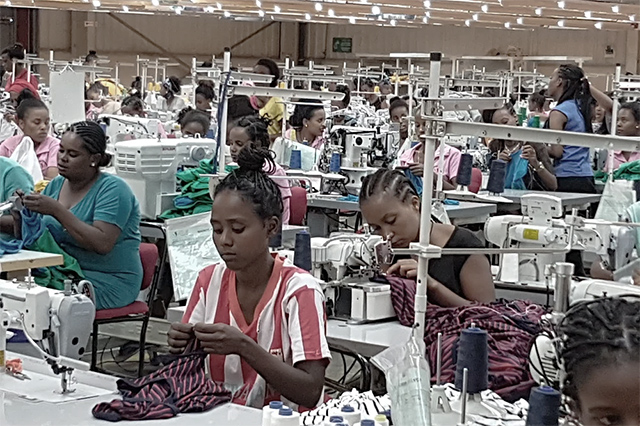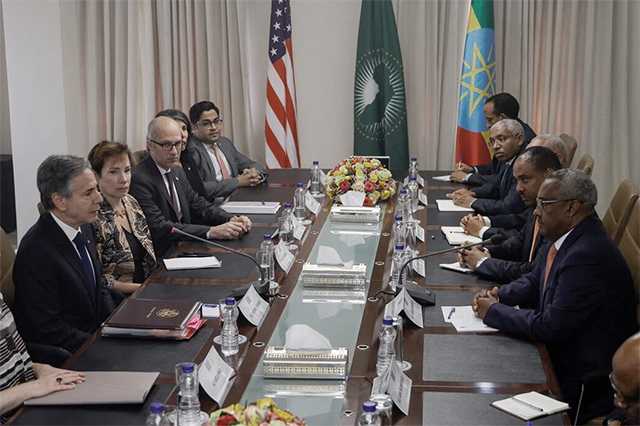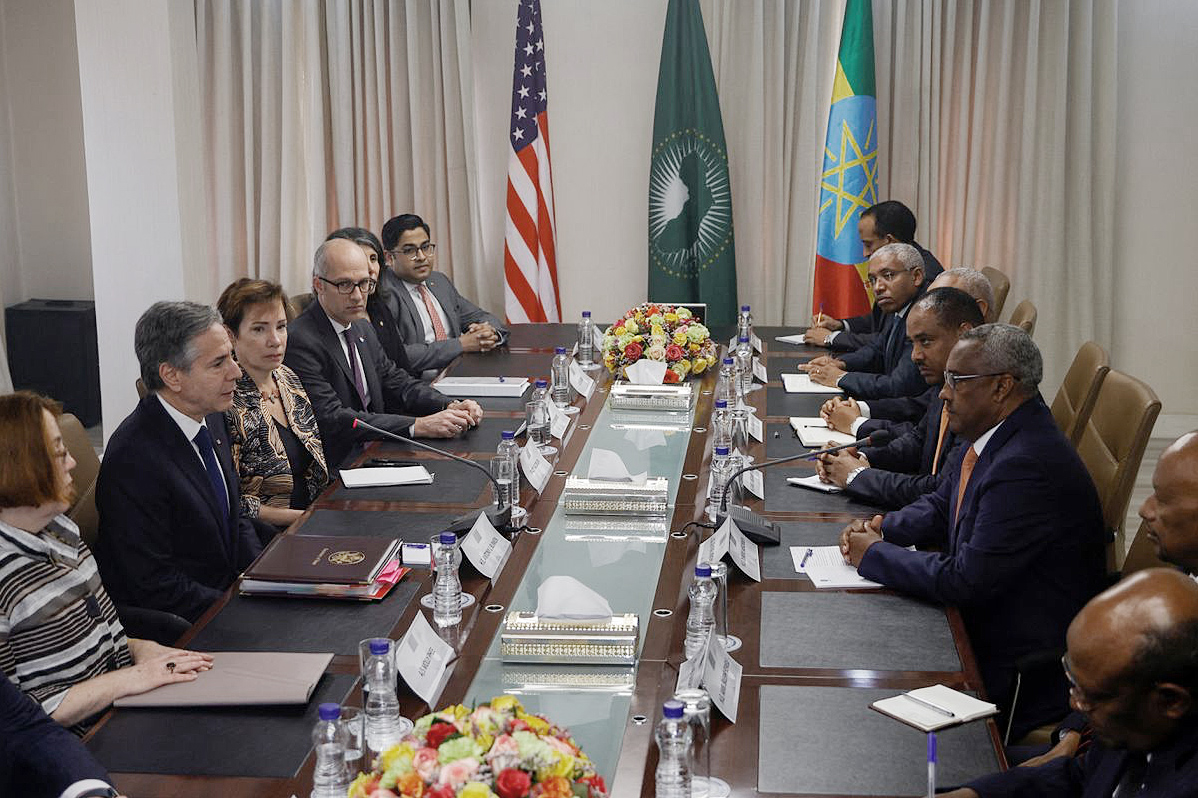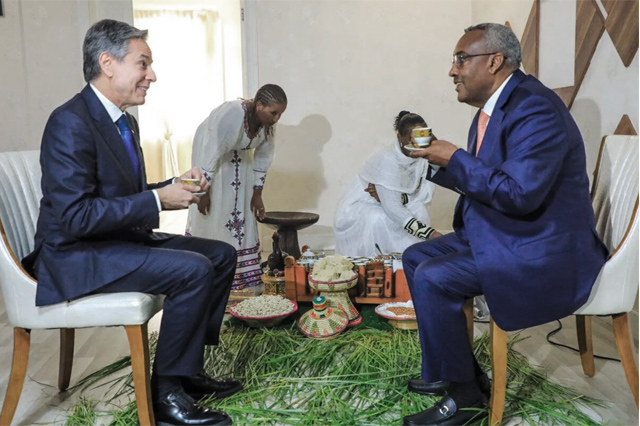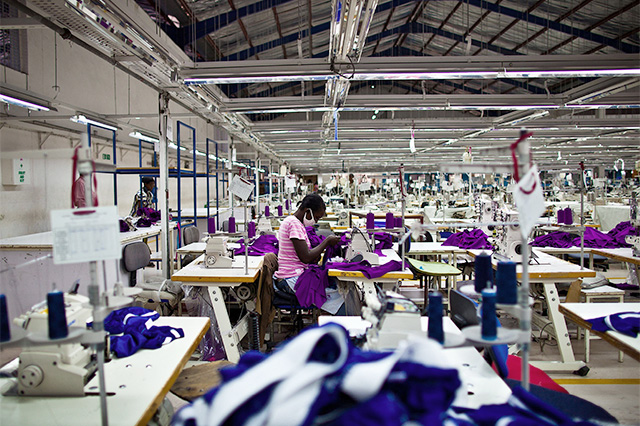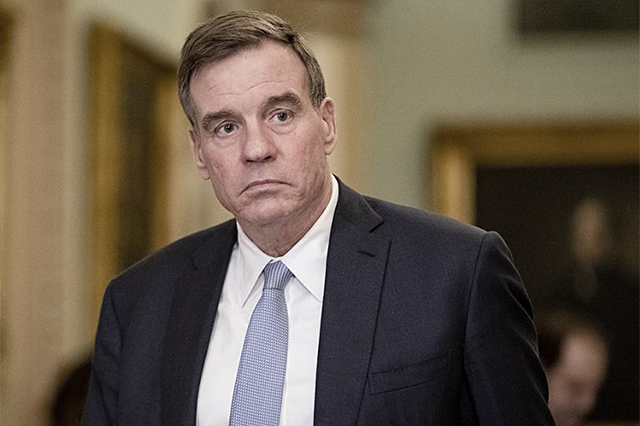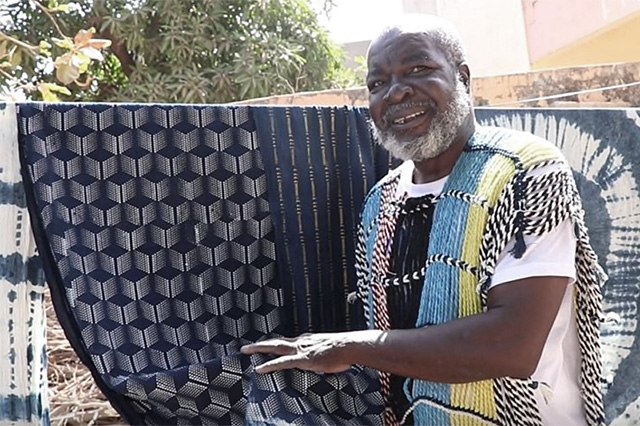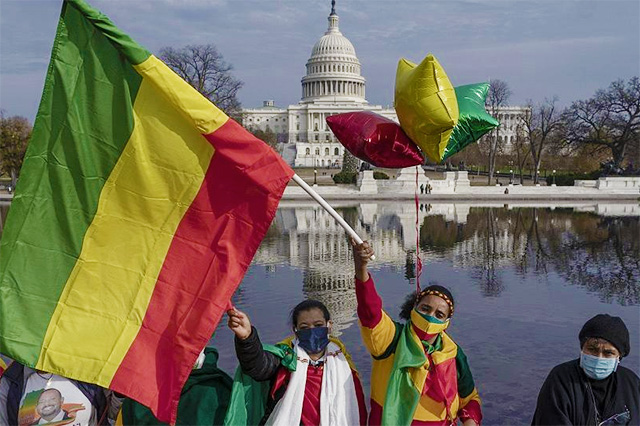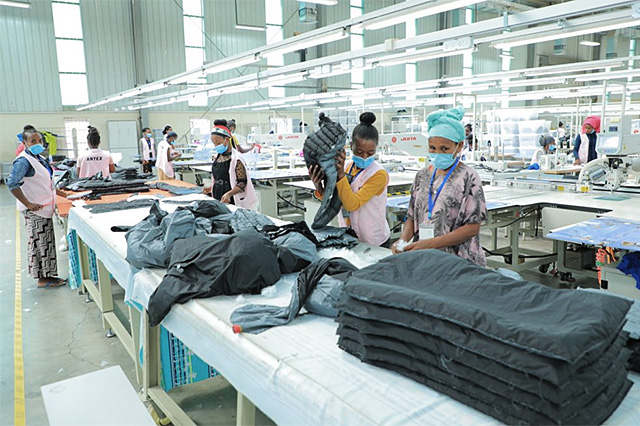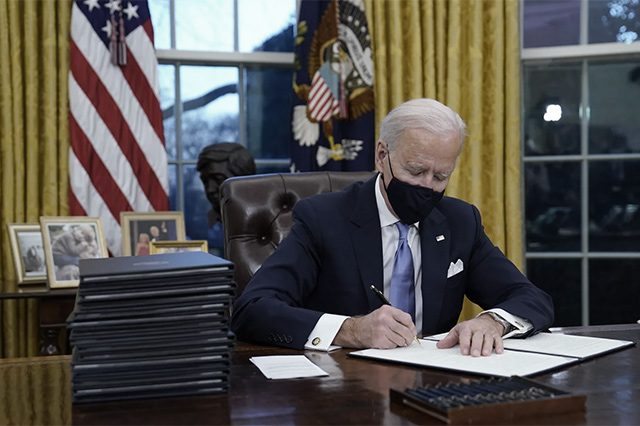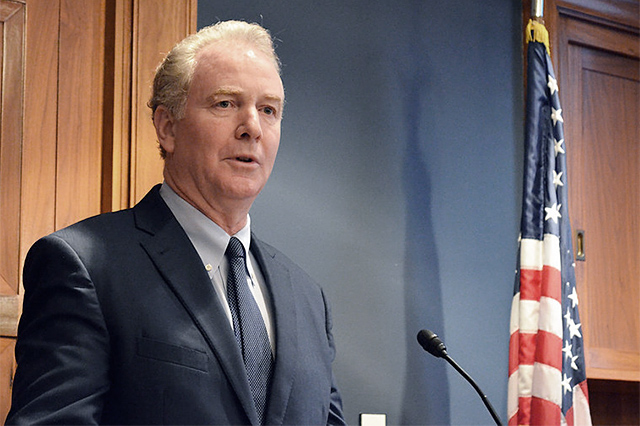Ethiopia a rising star for sourcing garments
Ethiopia is fast becoming a rising star for sourcing garments. The country's efforts to build its textile and garment industry and offer competitive prices have attracted a growing number of new buyers in recent years. Michelle Russell takes a closer look at the growth taking place in this developing market and what it has to offer those willing to invest.
Ethiopia's clothing and textile sector is undergoing rapid expansion fuelled by foreign investment as companies seek to reduce their reliance on countries like China and Bangladesh.
According to investment management company Silk Invest, Ethiopia is the fifth fastest growing economy in Africa, the third highest in the world for public investment, has a GDP growth averaging 10.7% over the last decade, and a population of 90m set to double in the next 20 years.
Expansion
The country's textile and clothing industry is currently undergoing a major expansion programme, and its government is implementing a number of prudent macroeconomic policies designed to support that growth. This has helped to place the country even higher on the radar of sourcing experts.
"The Ethiopian government is dedicated to growing the country's apparel manufacturing industry and has set a target of reaching US$1bn in textile exports by 2016," says Magdalena Kondej, head of apparel research at Euromonitor. "This is a very ambitious figure, with developments in 2014 likely to determine just how realistic it is."
The first port of call for any potential foreign investor is The Ethiopian Investment Agency (EIA), which is responsible for issuing investment permits, work permits, trade registration certificates and business licenses. It also aims to encourage investment and promote the inflow of foreign capital and technology into Ethiopia.
"The Government is very well aware of what it needs to do in order to generate growth in the country and there are huge opportunities for investors in that respect," says Simba Makoni, investment analyst at Silk Invest East Africa.
Apparel hub
Indeed, Ethiopia is certainly on its way to becoming a major African apparel hub, taking advantage of its status under the Africa Growth and Opportunity Act (AGOA).
According to writer Rupa Ganguli, author of a new just-style research report on 'Ethiopia - the emerging textile and clothing industry', more than 95% of the apparel imports under AGOA are open to the ‘third country’ fabric rule of origin, which allows apparel manufacturers to utilise yarns and fabrics from any origin.
"This change was put in place because Ethiopia and other countries benefiting from AGOA are still not equipped to utilise only their own raw materials to create products as required by US brands and retailers. They still need to import their raw materials from Asian countries such as China, India and others," Ganguli says.
International interest
In addition to the US, an increasing number of global retailers such as H&M, Tesco and Primark have begun sourcing clothing from sub-Saharan Africa.
Swedish fashion giant H&M Hennes & Mauritz, in particular, has been open about the opportunities it sees for producing apparel in Ethiopia.
Last month, H&M CEO Karl-Johan Persson, said the company had started producing on a small scale in the country and will now "see how it goes", describing the potential opportunity to expand further as "very interesting".
At present, and like many others, H&M sources around 80% of its garments from Asia, including Bangladesh, where the Rana Plaza factory collapse last year killed more than 1,100 people. This has put pressure on large manufacturers to improve safety conditions for workers.
Another retailer, discount apparel group Primark, began sourcing from Ethiopia last year, while Tesco is currently making efforts to raise working conditions and ethical standards before it begins sourcing garments from the Horn of Africa country.
This will be encouraging news indeed for the 60 garment factories, 15 textile mills, 28 leather tanneries and 18 shoe factories currently operating in the country.
Underestimated potential
The figures look good but there is clearly much more work to be done if Ethiopia is to achieve the status of China and Bangladesh as a major sourcing destination.
Silk Invest describes Ethiopia as similar to China in the early 1980s: a place of "underestimated potential", with "enough patience to re-build a nation that can live up to re-claim its historical standing in the world's economy".
Silk Invest managing partner, Baldwin Berges, tells just-style: "[Ethiopia] has a very top-down driven policy, which is very pragmatic. It has a fairly large population that is expected to double in 15 years...and it has clear ambitions to become a manufacturing base. It is a country that is very stable."
He adds that the "very close relationship" between Ethiopia and China has also become important to the country's growth.
"Ethiopia is quite fascinated by the Chinese macro-economic governance. They're like kissing cousins, there is a very close dialogue."
But China is not alone in its interest in, or relations with, Ethiopia. Other investors include India, Sudan, Germany, Italy, Turkey, Saudi Arabia, Yemen, the UK, Israel, Canada and the US, according to Silk Invest.
And that is no surprise, given the textile and garment sector in the country has set ambitious targets to expand rapidly by 2015.
High growth rates
According to Ganguli, the export performance of the Ethiopian textile industry has increased, on average, 51% annually for the last six years.
While textile and clothing export figures are very small in relation to Ethiopia's share of global trade, it has been experiencing consistently high growth rates.
Ganguli says Ethiopia has managed to increase exports (although very small in real value) by over 50% between 2010 and 2012.
The US now accounts for around 40% of Ethiopia's total textile and garment exports, thanks to the AGOA trading agreement set up in 2000, while the EU takes almost all of the remaining 60%.
This market access to the EU could further improve in favour of Ethiopia with the new GSP in place from last month, Ganguli suggests.
GSP, or Generalised System of Preferences, is the system of preferential access granted by the EU to developing countries and Least Developed Countries (LDC). Ethiopia is categorised as the latter and benefits from zero tarrifs under the Everything But Arms (EBA) strand of the arrangement.
In addition to the EU and the US, however, around 3% of Ethiopia's exports go to Sudan and a small percentage to other countries in the region. Ganguli says there is a developing trend of textile exports going to Turkey, China and India.
Cotton production
In order to keep up with and encourage demand, Ethiopia's Government is working to increase the volume of cotton produced in the country: a key element of the region's expansion plans.
At the present time, around 3m hectares are available for cotton farming in Ethiopia. Only around 30-40,000 are being used, however, so the potential to produce more cotton is substantial.
"The textile and clothing manufacturing industry in Ethiopia currently has to import cotton and raw materials from China, India and other countries as the existing production of cotton is not sufficient for the requirements of the growing textile and clothing sector in the country," Ganguli says.
If this does not change, the country will continue to face strong competition from Asian manufacturers.



